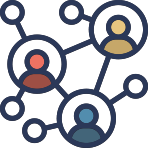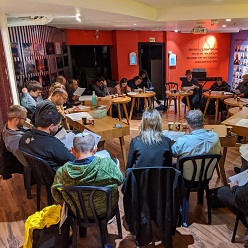A collaboration between the Sapir Center and Gesher aimed at encouraging influencers and public opinion leaders from a variety of Israeli social sectors to create programs and projects that promote bonds between different parts of society.
The program seeks to encourage the graduates of the Gesher Leadership Institute – approx. 280 influential people from all spheres of society – to create diverse programs that reinforce the bonds between Jews from different sectors of Israeli society.
The project is based on the assumption that the graduates’ activity in their field of influence and expertise will produce projects that are adapted to the target audience, will increase the scope of influence, and will expand the circles of discussion and connections between different social sectors and groups.
Goals
- To increase the scope of the projects and initiatives aimed at connecting different sectors.
- To expand the circles of Jewish Israelis from different sectors who encounter others in meetings that change mutual perceptions.
- To encourage Gesher leadership graduates to be active in their circles of influence with the aim of connecting Jews from different backgrounds in Israel.
Target Audience
The program’s target audience are the Gesher Leadership Institute graduates’ spheres of influence and belonging. The Institute strives to create connections between the different sectors of the Jewish People, both in Israel and in the Diaspora (in government, the media, education, the army and police, academia, culture, and others). This is achieved by fostering and training leaders and influential figures in Israel, and by promoting projects they lead within their circle of influence.


